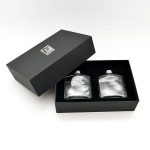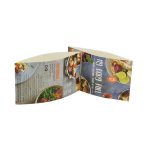
Imagine returning from your favorite vineyard with multiple wine bottles securely packed in a box that collapses to nearly flat when empty. The foldable wine box represents one of the most innovative developments in wine packaging, combining practical functionality with environmental consciousness. These clever containers are transforming how wine enthusiasts, collectors, and casual drinkers alike transport and store their precious bottles.
The traditional wooden wine crate, while charming, often becomes cumbersome storage after serving its initial purpose. Foldable wine boxes eliminate this problem entirely through their ingenious design. Constructed from durable yet lightweight materials like reinforced cardboard or food-grade plastics, these containers maintain structural integrity during transport while offering unprecedented convenience afterward. When emptied, they collapse with minimal effort, requiring up to 80% less storage space than conventional boxes.
Environmental sustainability stands as perhaps the most compelling advantage of foldable wine boxes. The wine industry has increasingly prioritized eco-friendly practices, and these containers represent a significant step forward. Their space-efficient design means fewer storage facilities require climate control, reducing energy consumption. Many manufacturers use recycled materials, and the collapsible nature enables easier recycling processes. Furthermore, the reduced volume during return shipping or storage translates to lower carbon emissions from transportation.
Beyond environmental benefits, foldable wine boxes offer remarkable practical advantages for various users. Wine collectors appreciate how easily these containers store between acquisitions, solving the perennial problem of bulky empty crates occupying valuable cellar space. Casual buyers find them ideal for transporting multiple bottles safely from store to home. Even vineyards and wine shops benefit from simplified inventory management and storage logistics, as empty boxes require minimal warehouse space before reassembly.
The design innovations in foldable wine boxes extend beyond mere collapsibility. Many feature secure locking mechanisms that prevent accidental opening during transit. Interior dividers keep bottles from contacting each other, while reinforced corners provide impact protection. Some premium versions include thermal insulation properties, maintaining temperature stability during transportation. These thoughtful design elements ensure your wine arrives in perfect condition, regardless of journey length.
For wine retailers and producers, foldable boxes present exciting branding opportunities. The large surface areas serve as perfect canvases for distinctive logos, artwork, and product information. Unlike traditional rigid boxes that often get discarded, these collapsible versions frequently get reused for storage or transportation, extending brand visibility long after the initial purchase. This extended brand exposure, combined with the positive environmental association, enhances customer perception and loyalty.
The economic advantages of foldable wine packaging extend throughout the supply chain. Manufacturers save significantly on raw materials and storage costs. Distributors benefit from reduced shipping volumes for empty containers. Retailers optimize their backroom storage, while consumers enjoy reusable packaging that doesn’t clutter their homes. This comprehensive value proposition explains why foldable wine boxes are rapidly gaining popularity across the industry.
As wine culture continues evolving, so do consumer expectations regarding packaging. Modern wine enthusiasts seek solutions that align with their lifestyle values—convenience, sustainability, and aesthetic appeal. Foldable wine boxes successfully address all these criteria while providing superior protection for the product itself. Their adaptability makes them suitable for various occasions, from casual gatherings to formal events, always impressing with their clever functionality.
The future of wine packaging undoubtedly includes wider adoption of foldable designs. As technology advances, we can expect even more sophisticated versions incorporating smart features like integrated temperature indicators or RFID tracking. The fundamental concept of collapsible, space-efficient packaging will likely expand to other beverage categories, creating new standards for sustainable transport solutions throughout the industry.
Whether you’re a casual wine drinker, serious collector, or industry professional, foldable wine boxes offer tangible benefits that traditional packaging cannot match. Their combination of practical convenience, environmental responsibility, and economic efficiency represents the next evolution in wine transportation. The next time you purchase multiple bottles, consider choosing foldable packaging—your future self will thank you when storage time comes, and our planet will appreciate the sustainable choice.




Leave a Message